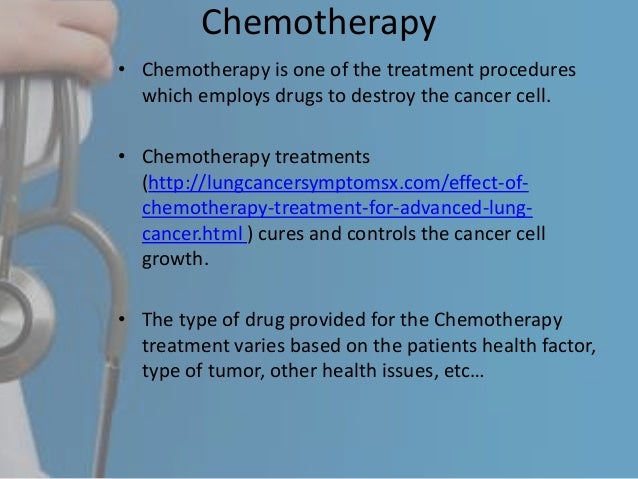Chemotherapy drugs can be injected with a needle just as you would receive a shot. Higher stages indicate larger tumors and a more extensive spread into nearby tissues.
 Chemotherapy At Different Stages Of Lung Cancer
Chemotherapy At Different Stages Of Lung Cancer
A study suggests that few people benefit from end-of-life chemotherapy and many people have worse quality of life after receiving it.
:max_bytes(150000):strip_icc()/stage-2-breast-cancer-429889-v12-f632cc0652d2493f9e0e8bd1d82a5171.png)
Stages of chemotherapy. But there is no evidence that chemotherapy alone improves the survival in patients with completely resected stage III and IV thymomas and thymic carcinoma. Stage 4 Breast Cancer. The stage extent of your breast cancer is an important factor in making decisions about your treatment.
For continuous frequent or prolonged intravenous chemotherapy administration various systems may be surgically inserted into the vasculature to maintain access. Chemotherapy may be used after surgery to reduce the risk of cancer recurrence coming back. Intra-arterial IA The chemotherapy is injected directly into the artery that leads to the cancer.
Stage 4 Liver Cancer. Chemotherapy drugs used to treat one area of the body. Still not much research has looked at whether palliative chemotherapy for end-stage disease actually does improve quality of life.
The chemotherapy goes directly into the peritoneal cavity which is the area in your body that contains organs such as your intestines stomach and liver. Stages 1 2 and 3. Chemotherapy is often used in combination with other therapies such as surgery radiation or hormone therapy.
Stage 2 usually means that the tumour is larger than in stage 1 but the cancer hasnt started to spread into the surrounding tissues. Another staging system that is used for all types of cancer groups the cancer into one of five main categories. Treatment of Breast Cancer Stages I-III.
Chemotherapy is used to treat. Advanced-stage breast cancer to destroy or damage the cancer cells as much as possible. The most common types are.
Chemotherapy may be given before surgery to shrink the tumor. The cancer has spread to other areas of the body. Surgery is recommended to remove the cancerous section of the colon and nearby lymph nodes.
Chemotherapy is commonly given at regular intervals called cycles. Stage 4 Hodgkins Lymphoma. In some cases chemotherapy is given before surgery to shrink the cancer.
A cycle may be a dose of one or more drugs on one or more days followed by several days or weeks without treatment. Stage 4 Lung Cancer. The stage and type of cancer you have.
But for many cancers the TNM combinations are grouped into five less-detailed stages. The use of combination therapy depends on. Intra-arterial chemotherapy involves administering the drug directly into the cancerous artery.
Sometimes stage 2 means that cancer cells have spread into lymph nodes close to the tumour. When talking about your cancer your doctor or nurse may describe it as one of these stages. Cancer treatment may include more than one type of therapy surgery radiation chemo etc.
Many women also get some kind of drug therapy. Early-stage invasive breast cancer to get rid of any cancer cells that may be left behind after surgery and to reduce the risk of the cancer coming back. Stage 1 usually means that a cancer is small and contained within the organ it started in.
Stage 4 Prostate Cancer. Topical The chemotherapy comes in a. Chemotherapy may be administered via an injection.
Stage II gastric cancer involves deeper layers of the stomach andor nearby lymph nodes. Stage 4 Colon Cancer. Depending on the person the cancer the stage of cancer the type of chemotherapy and the dosage intravenous chemotherapy may be given on either an inpatient or an outpatient basis.
Creams or gels containing chemotherapy drugs can be applied to the skin to treat certain types of skin cancer. Such in injection is administered at the thighs hip arm or under the belly. Stage 4 Pancreatic Cancer.
Most women with breast cancer in stages I II or III are treated with surgery often followed by radiation therapy. Stage 4 Ovarian Cancer. Chemotherapy given into a vein intravenous chemotherapy this is usually done in hospital and involves medicine being given through a tube in a vein in your hand arm or chest chemotherapy tablets oral chemotherapy this usually involves taking a course of medicine at home with regular check-ups in hospital.
In patients with extra-radiation field disease however the use of chemotherapy can potentially improve survival but no follow-up data on this group of patients are available. The following describes the common ways that chemotherapy treatments are used. Chemotherapy may be recommended in certain circumstances such as if the cancer is considered high-grade.
Stage III gastric cancer has spread to structures adjacent to the stomach andor to regional lymph nodes. Chemotherapy andor radiation therapy without surgery is usually reserved for patients who are not able or do not wish to undergo major surgery. Prior history of chemotherapy and any medical conditions that a person may have will also influence the choice and method of administering chemotherapy.
When chemotherapy is given for these reasons its called palliative chemotherapy. This gives normal cells time to recover from drug side effects. The TNM system helps describe cancer in great detail.
